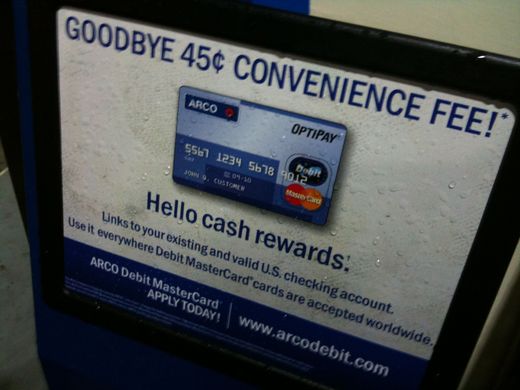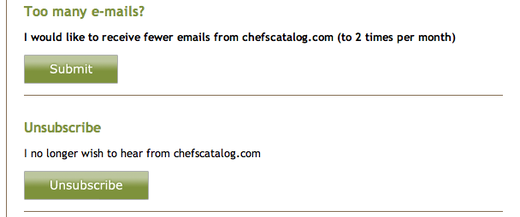
Say goodbye to convenience!
You’re reading Signal v. Noise, a publication about the web by Basecamp since 1999. Happy !

Now: The creator of Vooza, "the Spinal Tap of startups." Previously: Employee #1 at 37signals and co-author of the books Rework and Getting Real.

Say goodbye to convenience!
There’s more to building a great product than just studying the market or the technology or competitors. You need to have taste too. You need to understand what “great” means in a big picture sense, not just in your chosen field.
At least that’s what Steve Jobs thinks:
Great products, according to Mr. Jobs, are triumphs of “taste.” And taste, he explains, is a byproduct of study, observation and being steeped in the culture of the past and present, of “trying to expose yourself to the best things humans have done and then bring those things into what you are doing.”
Want to build a great iPhone app? Go listen to Billie Holliday. Trying to design a piece of hardware? Visit a Frank Lloyd Wright house. Aiming to write great marketing copy? Read Aldous Huxley. Need a color scheme? Go to the museum and check out some Mark Rothko paintings.
Studying masters in a wide range of fields is how you learn greatness. Their creations may not have a direct, instant benefit on whatever you’re making, but soaking them in will change the way you think and the decisions you make. (Side benefit: You’ll be a lot more interesting person too.)
Related: Acquire taste [SvN]

This “too many emails?” downgrade option from chefscatalog.com is a nice way to keep people in the fold (as opposed to merely offering unsubscribe).
Of all the sources of funds for an early stage venture, revenue is the most compelling demonstration of traction. Too many entrepreneurs view fund raising as an accomplishment in and of itself…A lot of what’s written about Silicon Valley entrepreneurship is actually part of a sales pitch or positioning for the venture ecosystem.
81% of tech company founders came from “regular” schools as opposed to elite institutions. Also, young guns may get more attention from the media, but most tech companies are founded by people who are out of school 13+ years.
Do Americans have bad taste? It’s a question we discussed here a few months back. Related, here’s a piece where Kenya Hara discusses Japanese aesthetics.
When coming back to Tokyo from abroad, my first impression usually is: What a dull airport! And yet it’s clean, neat and the floors deeply polished. To the Japanese eye, there’s a particular sense of beauty in the work of the cleaning staff. It’s in the craftman’s spirit — “shokunin kishitsu” — which applies to all Japanese professionals, be they street construction workers, electricians or cooks…
There is a similar craftman’s spirit (“shokunin kishitsu” or “shokunin katagi”) in Europe. Yet in Europe I can see it coming alive only from a certain level of sophistication. –In Japan, even ordinary jobs such as cleaning and cooking are filled with this craftman’s spirit. It is is common sense in Japan.
Hara also discusses why Japanese cooks prefer knives without any ergonomic shape.
A flat handle is not seen as raw or poorly crafted. On the contrary, its perfect plainness is meant to say, “You can use me whichever way suits your skills.” The Japanese knife adapts to the cook’s skill (not to the cook’s thumb). This is, in a nutshell, Japanese simplicity.

[thx Eva]
Neat profile of Great Lake, a small Chicago pizza shop that is very opinionated. The couple that runs it wanted to start a business that reflected their values: a neighborhood shop that purchases top-quality ingredients directly from farmers, makes every pizza by hand and serves great food at affordable prices. No substitutions allowed either. “When we put options together, they’re put together for a reason. We have such an edited menu, and it’s shocking how much people still want to manipulate it,” says co-owner Lydia Esparza. [thx MG]
Time: 21:02 | 01/19/2010 | Download MP3
Like this episode? Please share it with your friends:
37signals ID launch
Start time: 0:26
We recently launched 37signals ID which gives customers one username and password for all their Basecamp, Highrise, Backpack, and Campfire accounts. In this segment, Jason and David talk about 37signals ID, what it means for customers, and what was surprising about the launch. Related links:
A new way of working
Start time: 7:05
Jason and David discuss how 37signals is now working in teams. A team is made of three people: One designer and two programmers. A system administrator will also assist the team when necessary. Each team will stay together for two months (a “term”). When two months are up, the teams split up and form again with different people.
Previous episodes available at 37signals.com/podcast. Subscribe to the podcast via iTunes or RSS.
The weakness in our value chain with the customer was really in our core product.
David Simon, creator of The Wire, talks about why merely chasing eyeballs is the wrong path:
You better have something to say. That sounds really simple, but it’s actually a conversation that I don’t think happens on a lot of serialized drama. Certainly not on American television. I think that a lot of people believe that our job as TV writers is to get the show up as a franchise and get as many viewers, as many eyeballs, as we can, and keep them. So if they like x, give them more of x. If they don’t like y, don’t do as much y. We never had that dynamic in our heads. What we were asking was, “What should we spend 12 hours of television saying?”
He’s talking TV. But when launching a business, there’s a lot to be said for starting from a point of view and knowing what you want to say too. When you do that, you have an anchor for everything you do moving forward.
What do you have to say? What’s your purpose? What do you stand for? Where do you draw the line? Where do you want to lead people? What do you want to spend your days doing?
For example, Whole Foods stands for selling the highest quality natural and organic products available. They’re not selling the x that most people want. They’re saying, “We don’t do x. We do y.”
That approach lets you spend your days building something you actually care about.
Plus it gives you a hook. Everyone else is doing “give them more of x” so that winds up being generic. Avoid that and you get to pitch something different: It’s not TV, it’s HBO. It’s not a regular grocery store, it’s Whole Foods. It’s not [generic category], it’s [your product].